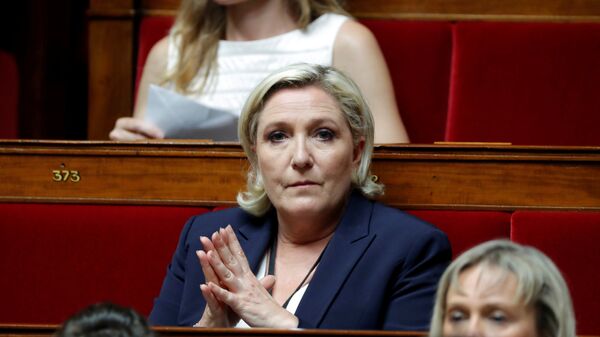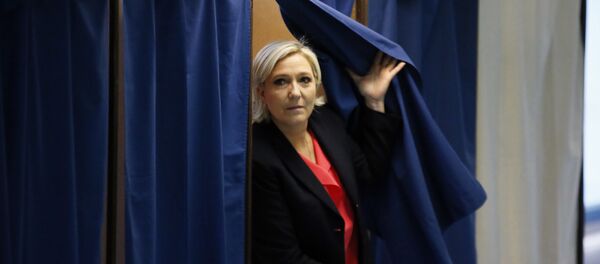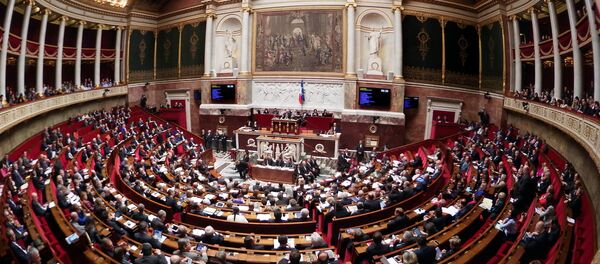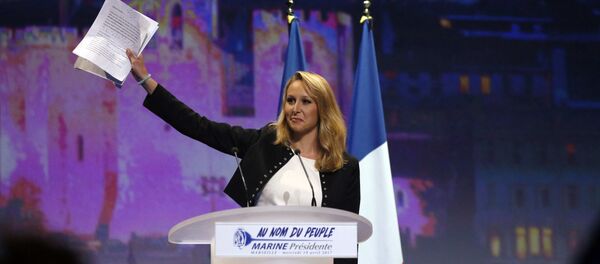"I want to change everything. For the name – yes, I think it is time to at least question it … I think that we need to change the functioning, probably leave it up to the adherents to change the name," Le Pen told the BFMTV broadcaster.
Le Pen, who was a rival of French leader Emmanuel Macron at the presidential election, added it was necessary for form a party structure capable of welcoming 11 million voters who had supported the FN leader at the presidential election.
"We are the only opposition force to Emmanuel Macron, here is the reality, and this force has to be better structured and have the best possible performance, it needs to exceed the National Front," Le Pen noted.
"Why not lower the number of parliamentarians necessary to form a parliamentary group to 10 rather than 15? It would allow all the French people to have a parliamentarian in the group that represents them who can work in an equitable manner," the FN leader said.
Le Pen added that though the FN had not succeeded to form a parliamentary group as a result of the legislative election earlier in June, its members would "get there during our mandate." Le Pen expressed assurance that people would gradually get closer to the party’s values.
This would be done by forming a cross-party group with FN allies in parliament, according to the party leader.
"We invite those who stick to the same big choices as we do to come join us and take part in the formation of a big opposition force, the only one to be against Macron," she said.
On the first day of the session of the renewed parliament, seven parliamentary groups were formed, including Unsubmissive France, the Socialists, the Communists, LREM group, MoDem, the "Constructivists" (part of The Republicans and the UDI party) and The Republicans. The FN did not manage to form a parliamentary group.







